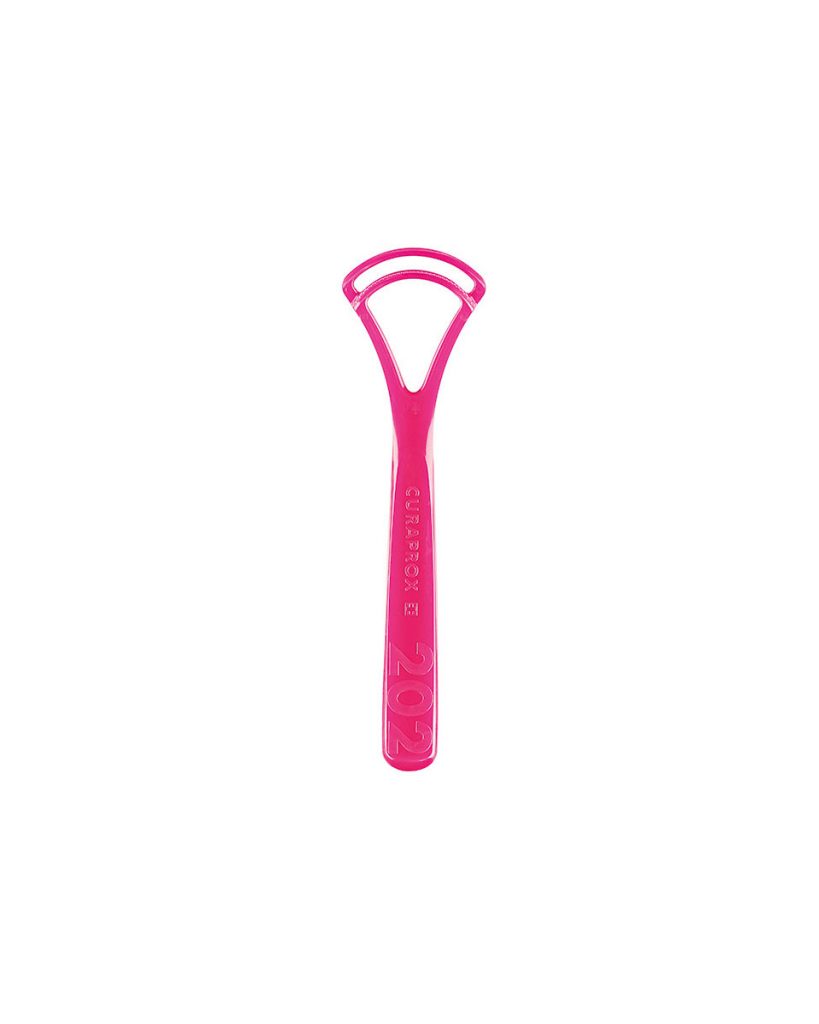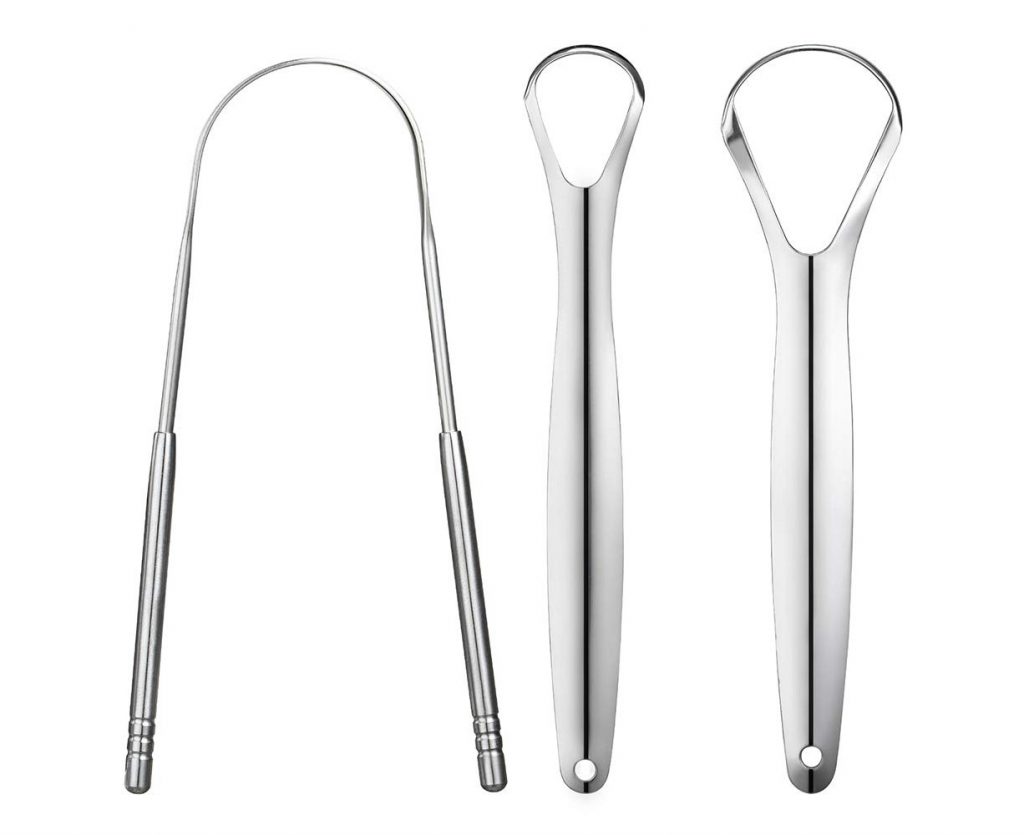A tongue scraper is a small device to help clean your tongue. Tongue scraping is a good idea for everyone, but it is more beneficial for some than others. People are more prone to build up on their tongue with respiratory infections, dry mouth, mouth breathing, smoking and depending on their own individual tongue and oral microbiome (the type of good and bad bacteria in their mouth).
Tongue scraping helps to remove the plaque that sticks on the tongue. Our tongue is like a carpet, with lots of piles. Plaque loves to get in there. Our tonge sheds, like skin or mucosa (the skin in our mouth), so it is not too harmful for the tongue, but it acts as a reservoir of bacteria and can cause bad breath. Keeping the levels of bacteria lower, helps reduce bad breath. Of course, there are other causes of bad breath, so it is important to stay on top of flossing, brushing and regular dental cleans and hygienist visits too. Usually, once a week tongue scraping is sufficient for most people, but if there is a lot of build up, daily use for two weeks and then drop down to weekly is a good practice.
How does a tongue scraper work?
A tongue sraper works by just physically dislodging the plaque off the tongue, just like using a toothbrush on your teeth or a sweeping brush inside our house. As the tongue is soft and flexible, a more rigid tool works better than bristles, but a toothbrush can be used. The small rubber tongue cleaners on the back of a brush are OK but not great. Broad flat scrapers, similar to a ladyshave razor in shape seem to work well. Some electric brushes have an attachment than can be used for tongue cleaning. Brushing your tongue can work fine with a normal toothbrush. It is less efficient as the tongue depresses and the bristles don’t get in everywhere as well as a scraper can. A tongue scraper is cheap, (although premium ones are available) but if you don’t have one, a brush is fine. If there is a lot of build up, using a tongue scraper is definitely the better option. Using a tongue scraper too agressively could irritate, so it is best to use gently. Ensure that you rinse after use, so you don’t inhale the bacteria or allow it to repopulate easily. Inhaling bacteria from the mouth is thought to increase respiratory illnesses. Keeping the levels low with good oral hygiene should reduce that risk.
Is this a new thing I need to do?
Tongue scraping has been around for a long time. People used to use pitted fruit, like peach pits or plum stones when there were no commercially available tongue scrapers. So, although it has become more common to make it part of a normal hygiene regime, the principle is old. As with all dental hygiene, it is really all about reducing the amount of plaque. Brushing, flossing and mouthwash are all different ways to do that too.

